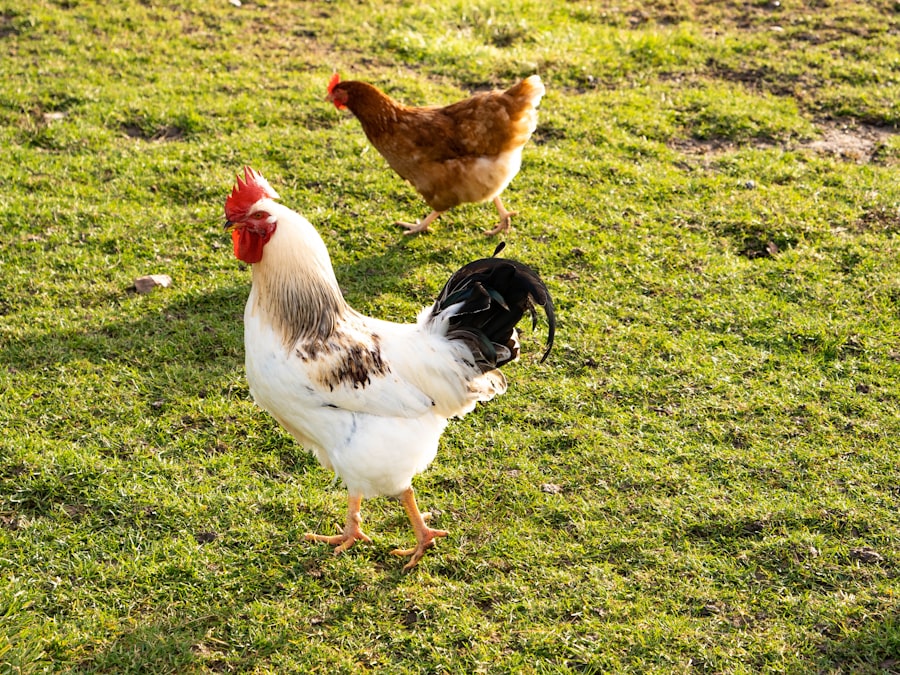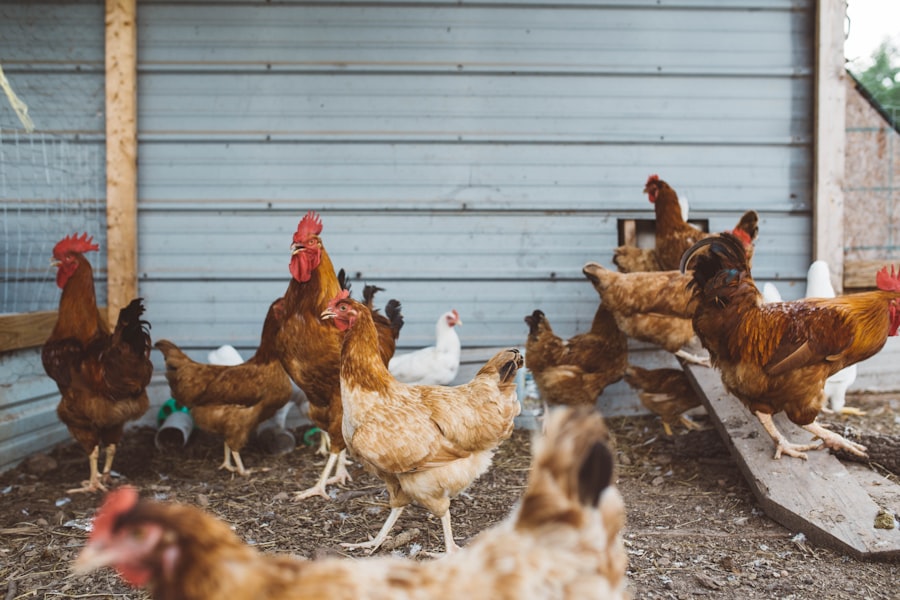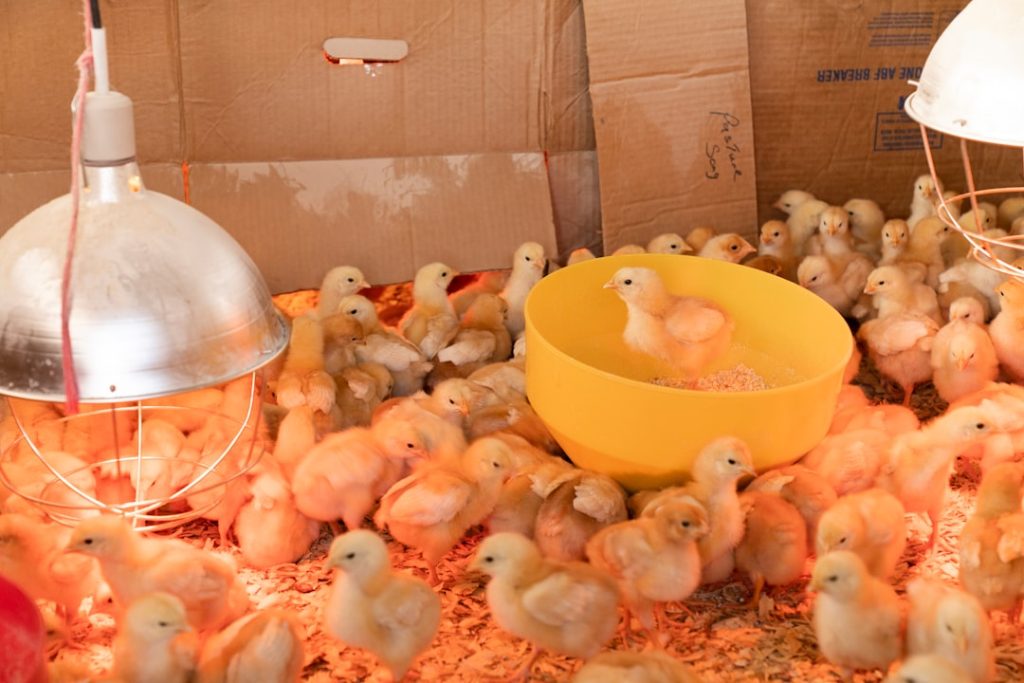Chickens require mental and physical stimulation for optimal health and well-being. Providing an engaging environment is crucial for preventing boredom, which can lead to stress, aggression, and various health issues. Bored chickens may exhibit destructive behaviors such as feather pecking and egg eating, potentially resulting in injuries and decreased egg production.
Stress from boredom can also weaken their immune systems, making them more susceptible to illness. To maintain the health and happiness of chickens, it is essential to create a stimulating environment that promotes natural behaviors and facilitates social interaction. This approach helps ensure that chickens lead fulfilling lives and remain in good physical and mental condition.
By prioritizing the amusement and engagement of their chickens, owners can significantly contribute to the overall welfare of their flock.
Table of Contents
- 1 Providing a stimulating environment for your chickens
- 2 Engaging toys and activities for chickens
- 3 Creating opportunities for natural behaviors
- 4 Incorporating foraging and scavenging into their routine
- 5 Ensuring social interaction and companionship for chickens
- 6 Monitoring and adjusting their amusement strategies
- 7 FAQs
- 7.1 What are some ways to keep chickens amused?
- 7.2 Why is it important to keep chickens amused?
- 7.3 What are some examples of toys and objects that can keep chickens amused?
- 7.4 How can I create a stimulating environment for my chickens?
- 7.5 Are there any specific breeds of chickens that require more stimulation?
Key Takeaways
- Keeping chickens amused is important for their physical and mental well-being
- A stimulating environment with space to roam and explore is essential for chickens
- Engaging toys and activities such as hanging treats and mirrors can keep chickens entertained
- Providing opportunities for natural behaviors like dust bathing and perching is crucial for chicken amusement
- Foraging and scavenging activities can help chickens stay active and mentally stimulated
- Social interaction and companionship with other chickens is vital for their happiness
- Regularly monitor and adjust amusement strategies to keep chickens engaged and content
Providing a stimulating environment for your chickens
Providing Variety and Stimulation
In addition to space, it is important to provide a variety of structures and objects for chickens to interact with. This can include perches, dust bathing areas, and even simple objects such as hanging mirrors or shiny objects. These additions can provide mental stimulation and prevent boredom.
Creating a Diverse Environment
Furthermore, providing a diverse environment with different textures, surfaces, and hiding spots can keep chickens engaged and entertained. This can include adding plants, rocks, or other natural elements to the environment.
Ensuring Happy and Healthy Chickens
By creating a stimulating environment for chickens, owners can ensure that their birds remain happy and healthy. A well-designed environment can help reduce stress and promote overall well-being, leading to a longer and healthier life for your chickens.
Engaging toys and activities for chickens

In addition to providing a stimulating environment, engaging toys and activities can help keep chickens amused and prevent boredom. There are a variety of toys and activities that can be introduced to a chicken coop or run to keep the birds entertained. For example, hanging treats such as cabbage or lettuce from a string can provide both mental and physical stimulation as the chickens peck at the treats.
Additionally, introducing objects such as balls or hanging mirrors can provide visual stimulation and prevent boredom. Another engaging activity for chickens is the introduction of a chicken swing. This simple addition can provide hours of entertainment for chickens as they swing back and forth, providing both physical exercise and mental stimulation.
Additionally, introducing novel objects such as cardboard boxes or straw bales can provide opportunities for exploration and play. By incorporating engaging toys and activities into the chicken’s environment, owners can ensure that their birds remain entertained and content.
Creating opportunities for natural behaviors
Chickens have natural instincts and behaviors that are essential for their well-being. Providing opportunities for these natural behaviors is crucial for keeping chickens amused and preventing boredom. For example, dust bathing is a natural behavior for chickens that helps keep their feathers clean and free from parasites.
Providing a designated area with loose soil or sand allows chickens to engage in this behavior, which not only keeps them clean but also provides mental stimulation. Another natural behavior for chickens is perching. Chickens naturally seek out elevated spots to roost and rest.
Providing various perches of different heights and materials allows chickens to engage in this natural behavior, which provides both physical exercise and mental stimulation. Additionally, providing opportunities for nesting and egg-laying behaviors is essential for keeping chickens amused and content. By creating opportunities for natural behaviors, owners can ensure that their chickens remain mentally and physically stimulated.
Incorporating foraging and scavenging into their routine
Foraging and scavenging are natural behaviors for chickens that are essential for their well-being. Incorporating these behaviors into their routine not only provides mental stimulation but also allows chickens to fulfill their natural instincts. For example, scattering food around the coop or run encourages chickens to search for their food, mimicking their natural behavior in the wild.
This not only provides mental stimulation but also encourages physical activity. In addition to scattering food, introducing a chicken-friendly garden or planting areas with edible plants can provide opportunities for foraging and scavenging. Chickens naturally seek out insects, seeds, and plants in their environment, so providing opportunities for them to do so keeps them mentally engaged and physically active.
Furthermore, introducing novel objects such as logs or branches can provide opportunities for pecking and scratching, which are natural behaviors for chickens. By incorporating foraging and scavenging into their routine, owners can ensure that their chickens remain mentally stimulated and fulfilled.

Providing ample space for chickens to interact with each other allows them to engage in natural social behaviors such as grooming, preening, and vocalizations.
Introducing New Flock Members and Human Interaction
Additionally, introducing new flock members or integrating new chicks into the flock can provide opportunities for socialization and prevent loneliness. Furthermore, providing opportunities for social interaction with humans can also keep chickens amused. Spending time with your chickens, talking to them, and even hand-feeding them treats can provide mental stimulation and prevent boredom.
Visual Stimulation and Novel Objects
Additionally, introducing novel objects such as mirrors or reflective surfaces can provide visual stimulation and encourage social interaction among flock mates. By ensuring social interaction and companionship for chickens, owners can ensure that their birds remain happy and fulfilled.
Monitoring and adjusting their amusement strategies
Finally, it is important for chicken owners to monitor and adjust their amusement strategies based on the individual needs of their flock. Not all chickens will respond the same way to toys or activities, so it is important to observe their behavior and adjust accordingly. For example, if a certain toy or activity does not seem to engage the chickens, it may be necessary to introduce new options or remove the ineffective ones.
Additionally, monitoring the overall behavior of the flock can provide insight into their level of amusement. Signs of boredom or stress such as feather pecking or aggression may indicate that changes need to be made to their environment or activities. By regularly monitoring the amusement strategies of the flock, owners can ensure that their chickens remain content and fulfilled.
In conclusion, keeping chickens amused is essential for their overall well-being. By providing a stimulating environment, engaging toys and activities, opportunities for natural behaviors, foraging and scavenging opportunities, social interaction, and monitoring their amusement strategies, owners can ensure that their feathered friends lead fulfilling lives. Understanding the importance of keeping chickens amused is crucial for their health and happiness.
If you’re looking for ways to keep your chickens amused, you may also be interested in learning about how to care for guinea fowl. Guinea fowl can make great companions for chickens, and you can find out more about whether they can live together in this article.
FAQs
What are some ways to keep chickens amused?
Some ways to keep chickens amused include providing them with a spacious and stimulating environment, offering them a variety of toys and objects to peck at and explore, and allowing them access to fresh grass and insects to forage.
Why is it important to keep chickens amused?
Keeping chickens amused is important for their overall well-being and mental stimulation. Boredom can lead to negative behaviors such as feather pecking and aggression, so providing enrichment activities can help prevent these issues.
What are some examples of toys and objects that can keep chickens amused?
Examples of toys and objects that can keep chickens amused include hanging treats, mirrors, perches, and objects for pecking such as cabbage or a hanging ball of seeds.
How can I create a stimulating environment for my chickens?
You can create a stimulating environment for your chickens by providing them with a spacious and varied outdoor area, incorporating natural elements such as logs and branches, and offering them opportunities to forage for insects and plants.
Are there any specific breeds of chickens that require more stimulation?
While all chickens can benefit from enrichment activities, some breeds, such as highly active or intelligent breeds, may require more stimulation to prevent boredom and negative behaviors.
Meet Walter, the feathered-friend fanatic of Florida! Nestled in the sunshine state, Walter struts through life with his feathered companions, clucking his way to happiness. With a coop that’s fancier than a five-star hotel, he’s the Don Juan of the chicken world. When he’s not teaching his hens to do the cha-cha, you’ll find him in a heated debate with his prized rooster, Sir Clucks-a-Lot. Walter’s poultry passion is no yolk; he’s the sunny-side-up guy you never knew you needed in your flock of friends!







